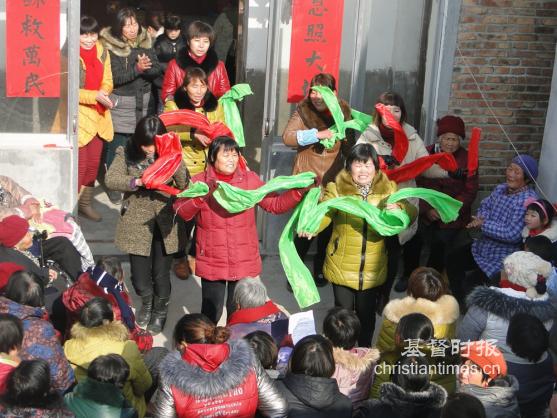When we look at the reality of Christian movement in modern China, it usually revolves around abstract theology and philosophical structure or the deep concept of pain and struggles in many believers' minds. However, if we trace our vision to the rural ministry, we will come to a more practical reality of Christians in rural areas.
Theology almost carries no practical value in many rural Christians' spiritual journeys. If Pastor A tells them that salvation will never be lost once gained, people will happily accept the teaching. However, if Pastor B teaches about another concept of how salvation is not guaranteed, they would still find it an absolute truth. As such, any philosophers will definitely find their teachings taking root easily in this soft soil.
Many factors have contributed to this weird phenomenon, one of which can be attributed to believers' limited ability of digesting complicated theology. When they could not grasp the concept fully, misunderstandings will break forth easily and most have given up digesting the concept by blindly agreeing with their pastors.
Besides, the complicated web of theology seems too distant or irrelevant to many who seldom read the bible. If you teach them about trinity, they would agree with you first but then brush away the concept quickly s they find it irrelevant to their practical life. They would rather spend more energy in praying for their needs to be met rather than meditating on a theological concept.
Moreover, some believers tend to be very pragmatic. They are extremely interested in healing or having their practical needs met by God instead of other aspects of faith. They tend to easily forget about needs outside their own life in their prayer life.
I'm in no position to blame their tendency of praying over practical needs. Surely, all believers have unmet practical needs to pray over during the course of our spiritual journey. However, the inward-looking style of focusing on our own needs only will definitely restrict the impact and effectiveness of our Christian community.
This phenomenon is partially attributed by the resource-sparse time that most of the rural Christians struggled through before. They tend to be more practical and concerned of their present needs due to the hardship they've gone through. As such, they tend to remember what God has done for them instead of the theological concept. Hence, lack of theological foundation causes them to be more vulnerable to fall into cult influence.
Thirdly, due to rural Christians' limited understanding of "faith" concept, they tend to rely a lot more on their deeds to walk through earning God's favour. The concern over God's law, if overly relied upon, may lead them to view Christian journey in more extreme ways. For example, when one falls sick, he might think that God is punishing him for his sins.
The association of a strict Father without the element of mercy is formed out of many believers' ritualistic style of worship. Many of them take comfort in following a certain style of worship such as kneeling down in prayer, taking holy communion regularly and attending services faithfully. If certain forms of worship are removed from the church, they will definitely feel helpless as Christians due to the lack of association of Christianity to non-ritualistic elements.
Thus, many have concluded that it will be a waste of time to serve the rural ministry in China in view of their out-front limitations and loopholes in their faith journeys. However, no matter how challenging the existing issue is, the rural ministry still takes a bulk of China's Christian landscape, thus possessing tremendous potentials in fueling the Christian movement of the entire nation. This article is never meant to condemn any group but serves as reality check that cries out for help for this group of believers. May the rural ministry arise in faith and may God's mercy reside with his children.











